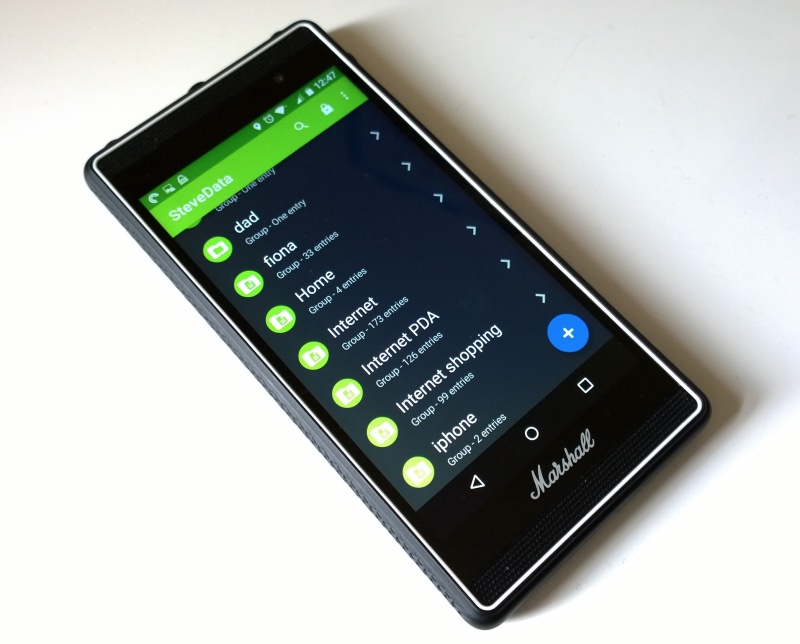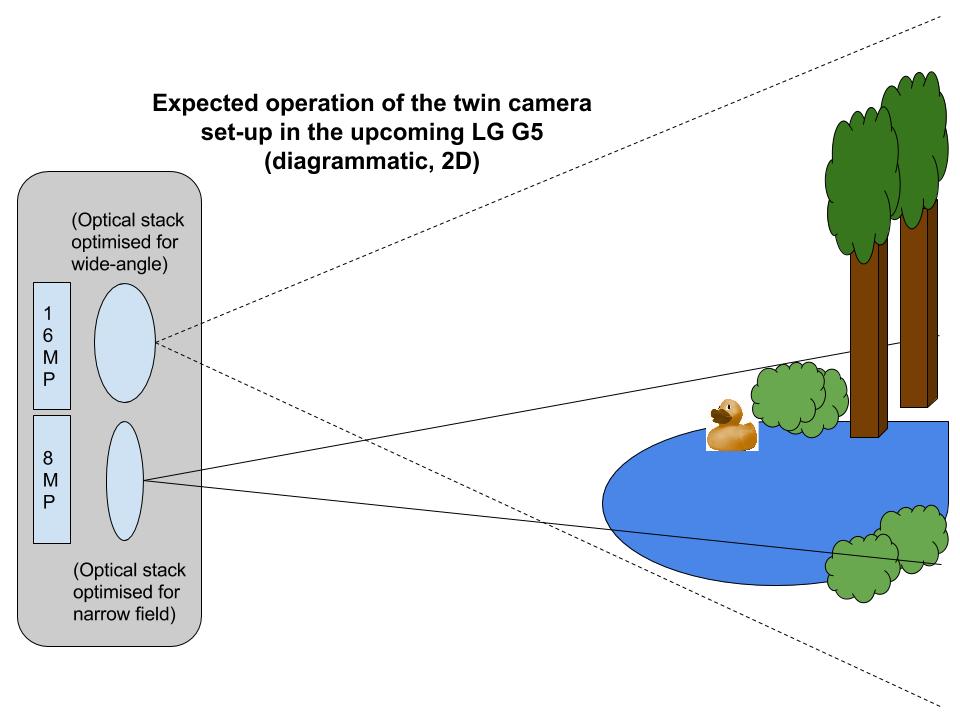At WWDC yesterday, Apple announced the eighth iteration of its mobile operating system, iOS 8, which was covered on our sister site iPhoneHacks — check the announcement, the top features, and the additional goodies. Being an Android lover at heart, but an open-minded gadget fan too, I can’t help but look at this new version of Apple’s ecosystem with both fascination and criticism. The company that we saw yesterday took a big departure from the Apple of old, a sign of the strategy switch post-Jobs. So without further delay, let’s delve into the aspects that surprisingly bring iOS closer to Android and those where the rift is widening considerably.
iOS 8 and Android: Feature parity
As I scrolled through my Twitter timeline yesterday — where I follow many fans of Apple, Google, and even Microsoft — I couldn’t help but notice the Android users repeating “welcome to 2008 (or 2010 depending on the feature)” ad nauseam. And they were right to a certain extent. With iOS 8, Apple introduced these well established Android-like features:
- A new QuickType keyboard that offers contextual suggestions and learns based on your habits of communicating with different people (formal, friendly, slang).
- Third-party keyboard support, so that companies like Swiftkey could bring their swiping mechanism to text entry on iOS.
- Interactive notifications where you could reply to messages or act on other notifications without opening the corresponding app.
- Widgets, only in the notification shade, but with actionable possibilities too, like raising the bid on an Ebay item.
- Always-on voice activation with “Hey, Siri.”
- Plenty of iMessage improvements that put it on par with Hangouts (or WhatsApp, Viber, etc) like media and location sharing, leaving groups, and so on.
- iCloud Drive, a cloud storage for files that acts like Google Drive and also fixes iOS’ lack of on-board file system access.
- Inter-app communication, an Android Share-like option to send data from one app to the other without jumping through dozens of hoops.
- An on-board photo editing capability.
Yes, iOS borrows a lot of Android’s features, with slight tweaks here and there, but is that a bad thing? Not really. First, Apple is showing a more thoughtful way of implementing some features we don’t question anymore — the interactive notifications and the contextual keyboard are a great example of that. Second, this will make switching between Android and iOS easier for users who own an Android phone and an iOS tablet, or the opposite.


iOS 8’s keyboard makes suggestions based on context – very smart!
And third, as an Android user, I don’t take solace in knowing that my ecosystem is oh-my-God-so-much-better-than-everything-else. Instead, I like to see everyone enjoying the features that have made my life easier over the past years, whether these people use Android or another operating system. If anything, the above iOS 8 changes cement the fact that Android has awesome ideas — even Apple is admitting it!
Where iOS 8 leaps ahead or stays behind
Starting with the obvious, iOS 8 still lacks a few of Android’s signature features:
- There’s yet to be a way to change the default apps aside from the keyboard (browser, camera, gallery, launcher, and so on).
- Widgets aren’t allowed to reside on the homescreen, and the launcher is still a simple grid of icons that you can’t resize or change.
- There is no way to run floating windows on top of other, like my beloved Link Bubble does on Android, or the many YouTube and video players that have a pop-up feature.
- There still isn’t a possibility to access local storage easily, or share files through bluetooth.
- iOS is still Apple’s exclusive. No other OEM will be able to make iOS devices (duh).
However, iOS 8 took a few leaps ahead of Android on more than one occasion yesterday:
- Family Sharing lets up to 6 people share their apps and media purchases from the App Store without having to pay again. Parents can also control what their kids purchase on their devices.
- Apple flexed its OS X and iOS muscles to bring a tighter integration with the desktop, with iOS messaging and calls coming to the Mac, and seamless continuity between apps on the phone and the computer.
- HealthKit is a central hub for all the accessories, wearable sensors, and apps that target your medical conditions or exercise routines.
- HomeKit is another central hub for all the accessories, appliances, and sensors that are made for the house.


Family Sharing, a smart way of purchasing apps and content once with your family members
Apple vs Google: A widening ecosystem and philosophy gap
Although yesterday’s keynote was a big switch from the Apple I once knew, it brought with it another message of walled-garden approach. With iCloud, HealthKit, HomeKit, Apple is building an empire in its own ecosystem and is unwilling to share that with other platforms. Accessory and appliance manufacturers as well as developers will have to support those new protocols and APIs to make them compatible with iOS devices, and will either have to bring a second line of products or include another set of options to bring them to Android and Windows Phone. They might also decide not to bother with anything else.


The Health app and HealthKit aim to be the central dashboard for wearables, medical devices, and apps
Another example is the desktop integration with the Mac. Apple couldn’t be clearer about its message: “You either subscribe to the Apple philosophy, all the way, from your phone to your computer to your home and your health, or you won’t reap the benefits of what we are building.”
I don’t blame them, and I completely understand the business rationale behind this approach. But as a consumer who wants to have the luxury of choice, I feel like that is getting taken out of my hands bit by bit. I currently use iMacs, a Macbook, and iPad Mini, along with my LG G2 and Nexus 7. I elect to use services that are cross-platform — Dropbox, WhatsApp, Todoist, Pocket, Instagram, Trakt, Plex, Runtastic, Fitbit, etc — so I can always switch to the operating system of my choosing without having to worry about migrating my data. I fret that the new wave of accessories and software that will integrate with Apple’s APIs will be restrictive to the company’s ecosystem, and I will be robbed of the choice to use them.
The same can’t be said about Google’s approach. When the company introduced the Chromecast or Google Glass for example, it made them immediately compatible with iOS and Android. That has been Google’s strategy with its services as well. Google Now, Google+, Hangouts, Google Maps, YouTube, Google Drive, Gmail, Chrome, and so many of the company’s own apps and services are available for both platforms. That’s part of the reason that I feel comfortable staying with Google for some of my services and devices — I know they will work at least across two platforms, so they aren’t exactly open but they aren’t completely tying me down either.
What do you think?
I have laid out my argumentation about how iOS 8 is showing signs of Apple catching up to Google in some aspects, pulling ahead in others, and still lagging behind in some more. This version of the platform is definitely its best yet, and I can’t wait to run it on my iPad Mini. Is it enough to make me switch to an iPhone for my daily use? No, not really. Apple has won back a part of me with many of its new features, but is still keeping me at a distance with some of its strategy choices. The Internet of Things / Connected Devices world we are headed for is still in its infancy, and I am not willing to put my bets on one ecosystem just yet, not when I know that it will be incompatible with every mobile device that isn’t an iPhone or an iPad.
But I’d like to hear your thoughts on the matter. Of course I’m asking a very biased readership, since we’re on an Android site here, but I think it’ll be very interesting to see what the Android community thinks of iOS 8. Did it pleasantly surprise you with its added features? Do you think it’s blatantly copying Android and you’re simply cheering for Google to take one step ahead at I/O later this month? Are you impressed by the new HealthKit and HomeKit, or reticent toward them?

















